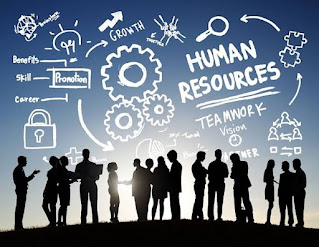Post-Covid Employability and Soft Skills
The novel Corona Virus pandemic has affected every section of society in some form or the other. Talking about employability, it accelerated the existing trends in remote work, e-commerce, automation, food delivery companies, and pharmaceutical companies.
Millions of people lost jobs or were furloughed, many rapidly
adjusted to WFH. A part of the workers was deemed essential and continued to
work in hospitals and grocery stores etc., yet under new protocols to reduce
the spread of the novel coronavirus.
Remote work and
virtual meetings are likely to continue in the future with less intensity.
Some companies are planning to shift to flexible workspaces
after receiving positive experiences with remote work during the pandemic. This
step will reduce the overall space needed and bring fewer workers into offices
each day. A survey of 278 executives in August 2020 by McKinsey found that companies
are planning to reduce office space by 30 percent on average.
Although remote work may discourage business travel as the
extensive use of videoconferencing during the pandemic has come up as a new
acceptance of virtual meetings and other aspects of work yet, leisure travel
and tourism are likely to rebound after the crisis. McKinsey’s travel practice
estimates that about 20% of the business travel segment may not return.
E-Commerce has grown faster during pandemic than before the
pandemic
Other types of virtual transactions like online banking, streaming entertainment, and telemedicine have also grown tremendously. Practo, a telehealth company in India, grew more than ten times from April to November 2020.
25% more workers may
need to switch occupations than those before the pandemic.
With a given concentration of job growth in high-wage
occupations and a decline in low-wage occupations, the scale and nature of
workforce transitions required in the future will be quite challenging. In this
regard, the companies and governments of various nations are responding and
enabling the youth to learn and acquire the required skills.
Five soft skills required for post covid working world
Adapting to Change
The employees and the ones seeking
employment should take time to acknowledge the changes and adapt to them.
Employers are recruiting people who can see change as an opportunity for growth
and innovation.
Creativity
Cost consciousness is still a focus for many
employers. The upcoming employees should be the ones who can think of creative
ideas to meet deadlines and fulfill the company’s objectives.
Effective Communication
Communication and its means have
drastically changed in these times: Even virtual conferences, video calls, and
online presentations also require the development of such skills.
Emotional Intelligence (EQ)
A high level of EQ is
imperative in such times. It not only helps one to become more empathetic but
will also help him to become a top performer in current and future workplaces.
Enthusiasm for Upskilling
Every employee should be prepared
to upgrade himself as per the demands of the changing time. Exhibiting one's
willingness to learn and understand new concepts not only helps one to prosper
as an individual but also assists the organization to progress.
Written by Yukta Anand (Guest Contributor)
References
2) https://www.siliconrepublic.com/advice/soft-skills-need-post-covid-working-world





Comments
Post a Comment